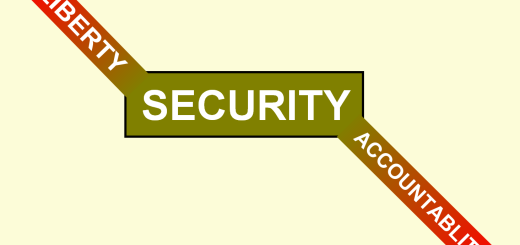Fear Not, Little Flock!
Every individual experiences fear. My first youth pastor was deathly afraid of spiders. I know several individuals who will voluntarily provide an opening in the wall for a new door if they encounter a snake – any kind of snake – while indoors. Many panic when they find themselves in a confined space. I have a hard time with heights. The list is endless, and to those who are affected, the fear is real.
Each of those things, in its own way, represents a legitimate danger to its potential victim, and fear is not an unexpected reaction. Nor is it unreasonable, except for the measure of control that it exercises over that individual’s life.
Fear keeps people from realizing their potential by destroying their confidence. It bullies people into doing things that, under different circumstances, they would never do, and keeps them from doing things that they should. It turns people who are naturally outgoing into antisocial hermits. And it steals peace, creating anxiety about things or events that people dislike, but can’t control.
The greatest fear we face, however, concerns an uncertain future, especially when our society is reeling in a moral freefall. The recent Supreme Court decision redefining marriage (from a purely political perspective) is alarming, to say the least. For those who are followers of Christ it demonstrates a shocking disregard for historical truth, setting the stage for moral anarchy, the consequences of which are terrifying for our country, churches, and families. The despair is obvious. No one knows what to expect next, and our apprehension grows.
Such events should not take us by surprise, however. Paul warned Timothy regarding the “perilous times” of the “last days,” clearly stating that “evil men and seducers” would prosper (2 Timothy 3:1, 13). Jesus advised His disciples to anticipate persecution (John 15:18-20). He also took great care to remind them that peace was not to be found in the pleasant circumstances of this life, but rather in Him. One of His last statements to His disciples concerned this matter. In John 16:33, the very night of His betrayal, He said to them: “In the world ye shall have tribulation: but be of good cheer; I have overcome the world.”
We must remember that our Savior is the source our peace, as well as our victory.
Luke 12:32 is an interesting verse. Jesus began His instruction to His disciples with the words “take no thought for your life, what ye shall eat, neither for your body, what ye shall put on” (V. 22). At the end of the challenge, He explained why they were to dismiss any anxiety over the concerns of this life when He said: “Fear not, little flock; for it is your Father’s good pleasure to give you the kingdom” (Luke 22:32).
What an encouraging promise. There is no reason to fear anything that happens in this life because our Heavenly Father takes great pleasure in giving us the kingdom. While that promise alone is, indeed, wonderful, there is much more in this verse. Jesus portrays our God as three different people, each providing specific benefits for every believer.
God, Our Shepherd – “Fear not, little flock;” Jesus first portrays God as our Shepherd. King David clearly understood that truth. He spent his early years tenderly caring for his sheep, protecting them, feeding them, and guiding them. His concern for them was genuine, and he would have gladly sacrificed his life, if necessary, for their good. When he penned the words, “the Lord is my shepherd,” he was rejoicing in God’s special care for him. God is our shepherd! Or we could say it this way: “Our Shepherd is the sovereign God of the universe.” Knowing that, why should we ever fear the wolves, or lions of this life?
God, Our Father – “…for it is your father’s good pleasure…” While a father’s role is, in many ways, similar to that of a shepherd, the motivation is quite different. A father has an intensely personal love for his children, and above all else, he wants his children to prosper. He will love, encourage, and, when necessary, chasten his children, but always in love. That love is what distinguishes a father from a shepherd.
Our Heavenly Father loves us unconditionally. There is nothing I can do that will make Him love me more than He does, nor is there anything I can do that will make Him love me less than He does. That’s because His love for me is based on His character, not my actions. His love was so great that He sacrificed His son to pay for our sins so that we could be reconciled to Him. He is, indeed, our loving Heavenly Father.
God, Our King – “…to give you the kingdom.” Who has the authority to grant access to the kingdom? No one; other than the King himself! The King’s authority is sovereign. He controls everything. He owns everything. He makes all of the decisions. He grants mercy at his will, and passes judgment according to his pleasure. He defines “good” according to his standard, and requires all men to accept it. And he alone, has the authority to extend grace to those who are unworthy.
Our King has chosen to extend that grace to those of us who are willing to believe on His son, and has determined, according to the good pleasure of His will, to give us “the kingdom.”
So, when unexpected circumstances occur; when it seems that evil is triumphing and my world is falling apart, I will put my trust in God.
I will not fear because the Lord is my Shepherd; He will protect me, provide for me and guide my steps so that I do not stumble, even in the face of openly accepted sin. He is my Father; He will love me, encourage me, care for me, and strengthen me no matter the severity of the challenge I face. He is my King, and He has chosen according to His good pleasure to give to me the kingdom.”
“Fear not, little flock; for it is your Father’s good pleasure to give you the kingdom” (Luke22:32). That’s a promise I can hold on to – no matter what the Supreme Court says.





Recent Comments